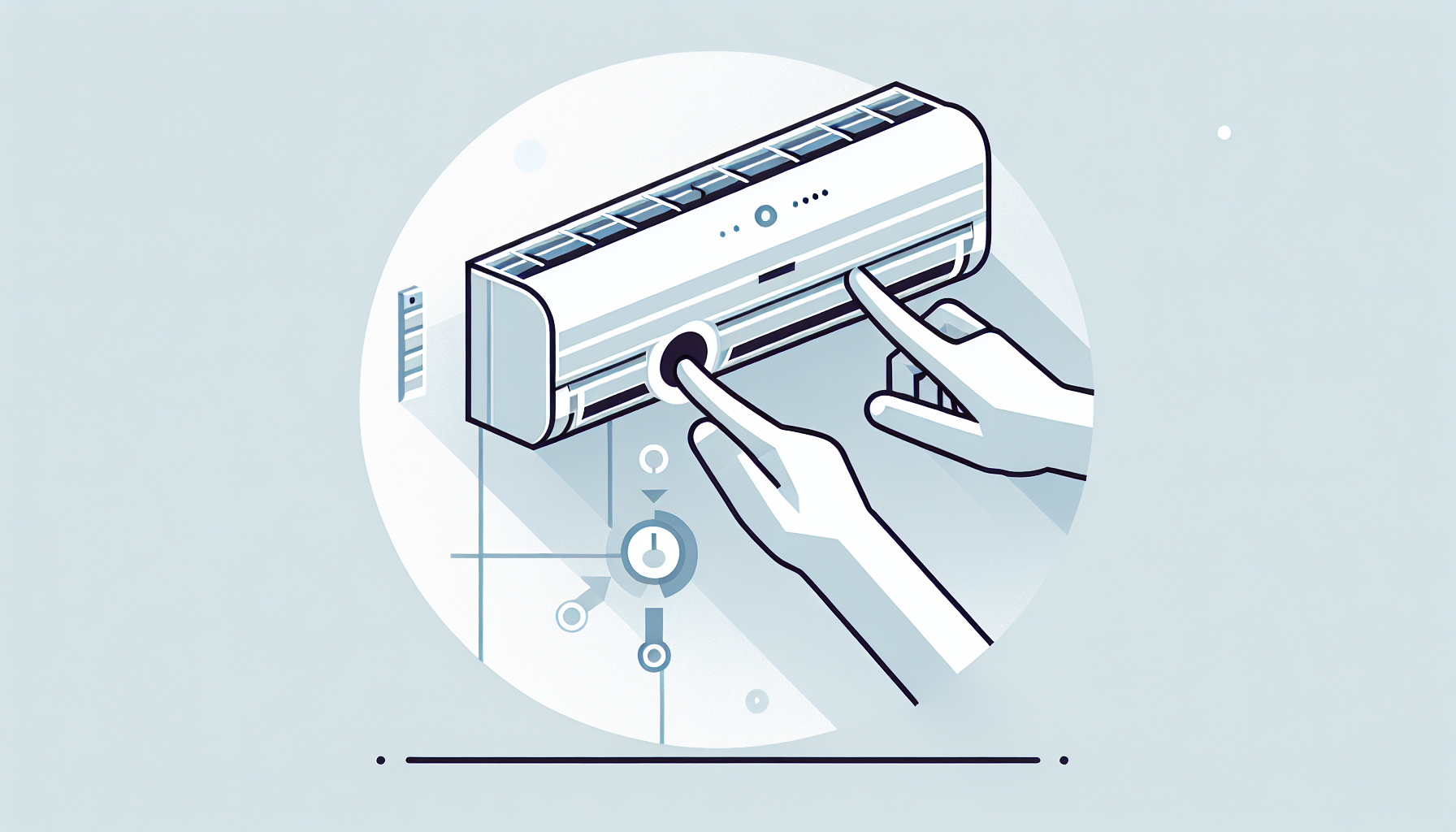General AC Unit Overview
Understanding AC Units
Let’s face it, surviving those sweltering summer days without air conditioning? Not cool. Your ticket to a chilled haven on those muggy days is picking the right AC unit. There’s a whole lineup of AC types out there, each ready to tackle your climate control conundrum in its own special way. Knowing your options helps you zero in on what’ll best blast away the heat.
Imagine a Portable Air Conditioner as a buddy that goes wherever you need a breeze in your pad. No need to get it professionally installed; it’s all about ease. Just plug it in, park it where you want, and it gets to work. There’s one tiny task, though—they blow out hot air, so you’ve got to stick that hose out a window or some opening. Confused? Find out more on venting portable air conditioners.
| Feature | Portable Air Conditioner | Window Air Conditioner | Ductless Mini-Split |
|---|---|---|---|
| Installation | Just plug and play | Sits snug in the window | Needs a bit of pro setup |
| Mobility | Handy and mobile | Stays put | Stays put |
| Floor Space | Takes a chunk of floor space | Leaves your floor free | Leaves your floor free |
| Heating Capability | Some models double as heaters | Cool-only champs | Cool in summer, warm in winter |
When space is tighter than your budget, window air conditioners swoop in as a lifesaver. They fit snuggly in a window and ditch the whole floor space drama, making them ideal for compact living spots. Plus, they pack a punch for cooling individual spaces without murdering your power bill.
Meanwhile, ductless mini-splits are the multitaskers of the AC family. They’ve got the muscle to heat or cool different zones in your home with a whisper-quiet operation—no window blocking included. Perfect when you’re in the mood for some air conditioning peace.
Knowing these traits helps make your choice less of a head-scratcher. Wondering if portable air conditioners are truly safe? Make sure they are properly ventilated and routinely maintained for the good of your air quality. If quality air is your jam, like in hospitals, then HEPA filters are your BFFs (CDC – Infection Control). Keep them in top shape and they’ll help you breathe easy, holding off those sneaky airborne nasties.
Types of Air Conditioning Units
Choosing the right air conditioner can be like finding the perfect pair of shoes for your home – it needs to fit just right. So let’s chat about the portable air conditioners, window air conditioners, and ductless mini-splits in your air-cooling wardrobe.
Portable vs. Window ACs
Both portable and window air conditioners will get your room cooler than a polar bear’s toenail. But each has its own quirks and qualities. Let’s break it down:
| Feature | Portable ACs | Window ACs |
|---|---|---|
| Installation | Super simple; no need for tools or a weekend project | Needs a bit of elbow grease – think windows or walls |
| Space Usage | Claims some of your precious floor space | Hogs no floor space, perfect for cozy apartments |
| Mobility | They’re the nomads of the AC world, moving room to room | Once it’s there, it’s there for good |
| Cooling Power | Sometimes struggles to live up to those big promises (Consumer Reports) | Packs a punch, often more reliable |
| Pricing | Not the cheapest way to cool, and can be a power hungry | Different strokes for different folks, but often more bang for your buck |
Portable ACs are like those quick-fix meals; they do the job when you need to cool several spots without a hefty investment. But, keep in mind, they’re not always as icy as their window-based cousins (CNET). If you’re losing sleep over safety, you might want to peek at are portable air conditioners safe.
Ductless Mini-Splits
Ductless mini-splits might sound like the intro to a gymnastics routine, but we’re still talking about ACs. They’re the go-to if your house isn’t playing ball with ductwork.
| Feature | Ductless Mini-Splits |
|---|---|
| Installation | Takes a little more than a plug-and-play approach |
| Efficiency | Wins gold medals for being efficient and quiet as a mouse |
| Space Usage | Likes to hang out on your walls or ceilings, saving you space for that house-sized plant |
| Flexibility | You get to play conductor with different units in the house |
These ductless wonders let you dictate the climate of each room like a boss. They’re practically whispering compared to the noise of other units and excel at keeping those energy bills in check.
When you’re pondering the perfect AC unit, think about what your wallet can handle, how much room you’ve got to spare, and your home’s chill factor needs. If you’re still on the fence needing some extra pointers about wiring and upkeep, more info might just make the decision a breeze.
Choosing the Right AC Unit
Picking the ideal air conditioner for your home isn’t as simple as grabbing the first one you see. There’s some stuff to think about, like how much cooling power it has (that’s BTU capacity to the pros) and where you stick it. Get those things wrong, and you might end up hot under the collar instead of chilled out.
BTU Capacity
BTU stands for British Thermal Unit, measuring how strong and effective your AC is at booting the heat. You’ve gotta get the right one. Too wimpy, and it’ll be overworked and underperforming. Too powerful, and it’s on-off like a broken record, wasting your wallet away and maybe stressing it out faster than it should.
Here’s a nifty chart to help get your BTUs right, based on the size of your room:
| Room Size (sq. ft.) | Minimum BTU Rating |
|---|---|
| 100 – 300 | 5,000 – 7,000 |
| 300 – 600 | 7,000 – 14,000 |
| 600 – 1,000 | 14,000 – 20,000 |
So, if you’ve got a room that’s 20 by 30 feet (or 600 square feet if you’re fancy), you’d need at least 14,000 BTUs to keep your cool (Peak Hydronics). Double-check what the box says so you don’t end up lukewarm instead of chilly.
Proper Placement Guidelines
Where you park your air conditioner matters just as much as what you buy. With portable ACs, hooking up the exhaust hose right is crucial. It’s gotta puff out the warmth and wetness outside effectively; otherwise, you’re risking sauna levels of heat and possibly stirring up asthma or allergy demons (Peak Hydronics).
Here’s a cheat sheet for setting up your portable AC:
- Plop it near a window so you can snake that exhaust hose outside.
- Keep the hose kink-free to ensure it doesn’t hyperventilate your space.
- Give it some breathing room all around to help it do its job.
- Steer clear of direct sunlight, or you might as well just fry an egg on it.
For how-tos on situations like a window AC blowing warm air or wondering about venting portable ACs, check out our other reads. Nail the BTUs and the setup, and you’ll be lounging in comfort, knowing you’ve got the coolest room on the block.
Safety Measures for AC Units
To keep your air conditioning units humming along safely and efficiently, a sharp focus on ventilation, air quality, and regular check-ups is a must. Here’s how you can make sure your home’s AC system stays in tip-top shape.
Ventilation and Air Quality
Getting the ventilation just right is super important for portable air conditioners. Make sure the exhaust hose is set up to kick the hot air and carbon dioxide to the curb—literally out the window. If that warm air lingers inside, you might find your space feeling stuffy, sticky, and possibly a bit hard on the lungs, especially if you or someone around you deals with asthma or allergies. Messed-up ventilation can turn your place into something you didn’t sign up for.
| Ventilation Factor | Importance |
|---|---|
| Exhaust Hose Placement | Direct it outdoors to dodge that unwanted heat buildup |
| Air Quality | Keeps moisture and nasty germs down, boosting health vibes |
For added peace of mind, think about grabbing solid air filters, especially ones with a carbon filter. They’ll not just knock out funky odors but also up the air quality game and help your unit work better. Swap those filters regularly—they’re the silent heroes of your AC setup. For more about keeping your AC in check, give a peek at our guide on what are the 4 phases of planned maintenance.
Maintenance and Filter Care
Regular check-ups aren’t just a good idea—they’re the key to your air conditioner’s safety and smooth operation. Keep those units spick and span, and ensure ducts and filters have their breathing room. Portable ACs don’t play with carbon monoxide or ozone, so you’re off to a safer start compared to some other cooling gadgets (Evapolar). But skip the upkeep, and you might as well invite in bad air and poorer performance.
| Maintenance Task | Frequency |
|---|---|
| Check Filters | Every month |
| Clean Unit | Monthly duties here too |
| Inspect Exhaust Hose | Do this when you notice anything off |
Going for a high-efficiency filter like a HEPA? Now you’re talking serious air cleanup, catching all those big particles wandering in your space (CDC – Infection Control). These smart moves will make breathing in your place easy-breezy while keeping your system on its A-game. Curious about how other cool options stack up? Check out our head-to-head on evaporative air coolers.
Common AC Unit Concerns
Having an air conditioner is a real game-changer in the sweltering heat, but it can also bring its fair share of headaches. From the unit not cooling like it should to mysterious electrical gremlins, here’s the low-down on what might be going on and how to keep things chill.
Cooling Capacity Issues
Many folks gripe about portable air conditioners not pulling their weight. Consumer Reports highlights that these units often deliver only about half the cooling advertised. This inefficiency can mean more money down the drain when compared to a window unit of similar size.
To figure out if your AC is up to snuff, check the British Thermal Units (BTU) rating. Here’s a quick cheat sheet:
| Room Size (sq ft) | Recommended BTU |
|---|---|
| 100 – 300 | 5,000 – 8,000 |
| 300 – 500 | 8,000 – 12,000 |
| 500 – 700 | 12,000 – 15,000 |
| 700 – 1,000 | 15,000 – 20,000 |
Make sure your unit’s BTU matches up with your room size. Cranking it too high can have you calling in sick with a summer cold and mess with your circulation.
If your AC is phoning it in and not living up to expectations, take a peek at the easy stuff like air filters or vents. For a step-by-step on maintenance magic, read our maintenance guide.
Electrical Malfunctions
Electrical hiccups are a frequent flyer with AC units. From dodgy wiring to circuit breakers throwing tantrums, these issues can halt your unit and pose safety risks. Watch out for: It’s important to keep an eye out for signs of electrical hiccups, such as flickering lights or strange noises coming from your AC unit. If you notice any of these signs, it’s crucial to address the issue as soon as possible to prevent any potential hazards. Understanding the emergency shutdown definition for your specific AC unit is also essential in case you need to quickly and safely shut down the system in the event of an electrical emergency.
- Circuit breakers tripping more often than a clumsy friend
- Weird noises or burnt rubber smells
- Your unit acting like it’s on strike
If anything weird is happening, switch off the unit immediately and call in a pro.
It’s also important to plug your AC into the right outlet—skip the extension cords and get a suitable socket to dodge short circuits and dangerous issues.
For model-specific electric quirks, peek at the Black and Decker manual.
Concerned about unusual fusses and musty odors? Hit up our articles on mysterious mini split odors and musty split system smells.
Getting the jump on these bumps in the road can keep your AC running smoother and longer. Need more pointers on fixing issues like a warm-breathing window AC unit or a moody Danby unit? We’ve got just the thing.
Keep Your Cool and Stay Safe
Simple Safety Tips for Portable AC Users
Using a portable air conditioner (AC) can be as smooth as a summer breeze if you follow some handy safety tips. Here’s a list of things to keep in mind:
| Safety Tip | What’s the Deal? |
|---|---|
| Read the Manual | Before getting started, give the manufacturer’s guide a look. Knowing how your AC should work helps avoid hiccups. |
| Let It Breathe | Make sure your AC has enough ventilation space so it doesn’t get too hot. Follow what the manufacturer says. |
| Safe Spot | Keep your unit away from spots where you’d escape in an emergency. You don’t want it blocking the way. |
| Child and Pet Free Zone | Kids and pets shouldn’t play around the AC. Let’s keep everyone safe and sound. |
| Vent Your Space | Don’t trap your AC in an air-tight room. Good airflow is key to keeping things cool and safe. |
| Extension Cord Know-How | If you need one, make sure it matches your AC’s power needs to avoid overheating. |
| Check It Out | Give the AC a once-over check regularly to spot any damages or worn-out cords. |
| Unplug When Idle | When you’re not using it, unplug it. It’s better for safety and your electric bill. |
| Skip the Generator | Stick to regular electricity; generators and ACs don’t mix well. |
| Keep It Clean | Dust off your AC inside and out often to keep it running like new and prevent any clogging. |
Even though portable air conditioners are handy, safety first! Keeping these tips in mind can help you sidestep potential mishaps (Evapolar).
Size Up Your Coolers: Evaporative Air Coolers vs. Portable ACs
Thinking of other cooling ways instead of portable ACs? Evaporative air coolers might just be your thing. They’re way simpler and bring extra perks:
| Feature | Portable AC | Evaporative Cooler |
|---|---|---|
| How It Cools | Uses refrigerants and compressors | Uses water and fans |
| Maintenance Needs | Needs regular filter changes and cleaning | Less hassle; just clean it and change cartridges sometimes |
| Energy Use | Eats up more electricity | Typically, easier on the energy bill |
| Safety Notes | Needs ventilation and can be tricky | Safer, no nasty chemicals involved |
| Noise Factor | Can be loud due to compressors | Generally quieter, with fewer moving parts needing big power |
Evaporative coolers sip less power and dodge harmful stuff, making them a top pick for safe home cooling (Evapolar). Take a good look at what you need for cooling and how safe you want to keep things when picking the right gear for your home.



